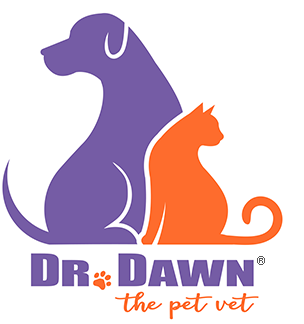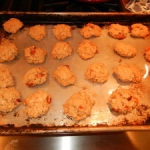The #holiday season is approaching, as well as many #risks to your #pets’ well being. This time of year I remind my clients of ways to reduce exposure to common #health #hazards.
Foods:
Chocolate contains a toxic substance called theobromine. A rule of thumb: the darker the chocolate, the higher the amount of theobromine. If you think your #pet ate any chocolate, contact your veterinarian or poison control asap. It isn’t just #chocolate candy that can pose a threat. Artificially sweetened items containing xylitol may also make #dogs seriously ill.
Raisins and grapes can cause life threatening kidney failure in some dogs and cats. It does not take much, and is best avoided. For that matter, well meaning relatives, each secretly feeding our dog or cat some rich, fatty, spicy table scraps may result in a holiday trip to the ER for your pet, Advise family against it, and physically remove your pet from the festivities if easier.
To round out the list, macadamia nuts, onions, alcohol exposure, and even rising bread dough all should be kept away from your pets for fear of ingestion.
Plants:
Cats often eat plants, so prevent access to, or avoid having the following.
American Mistletoe (there is also a European version) contains toxic lectins. Ingestion of only a few leaves or berries will cause gastrointestinal illness.
Holly is moderately toxic. All parts of the plant may result in vomiting and diarrhea, and depression.
Pointsettias have an irritating sap which can cause moderate gastrointestinal upset in dogs and cats.
Christmas cactus ingestion will cause your cat to vomit.
Lilies can cause kidney failure in cats. Avoid the varieties: Stargazer, Asian, Easter, Tiger, and some day lilies. Even minor bites of a leaf, or ingestion of the plant pollen may result in toxicoses.
Amaryllis plants are force bloomed during the holidays. All plant parts are toxic, but the bulbs contain the highest concentration of the toxic alkaloid compounds, causing severe GI and neurologic signs.
Christmas trees should be securely anchored to avoid tipping. And, the water under a live tree can contain fertilizers, metals, and bacteria that can also cause stomach upset. Pine needle ingestion can cause abdominal pain and vomiting, and if enough are eaten, abdominal obstructions and surgery.
For all of the above, consult a veterinarian about inducing vomiting, the sooner the better.
Tinsel, ribbons, string, other:
Cats are attracted to shiny tinsel, ribbons and strings on packages. They can potentially wrap around the tongue or cause a life threatening perforation of the intestines. Signs may be vague, but vomiting or straining to defecate are indications so see your #veterinarian immediately.
immediately.
Silica gel desiccant packets are commonly eaten. If the packet is chewed open, the contents will cause mild GI upset in dogs and cats. But, if swallowed intact, there is a risk of abdominal obstruction, which is a surgical emergency. Many dogs are seen each year for ingestion of, and obstructions resulting from eating toy parts. Restrict their access if at all possible. Use “pet safe” ice melts. Avoid liquid potpourri, which can cause chemical burns and neurologic toxicoses if eaten or licked off paws.
Keep your veterinarian’s number handy, in addition to
ASPCA’s Animal #Poison #Control Center number: 1-888-4ANI-HELP
(1-888-426-4435)
Website: www.apcc.aspca.org
Have happy, safe holidays.
Dr Dawn
#pethazards
#petsafety
#dogandcatdiet
#pethealth
Please share and subscribe to this blog here









